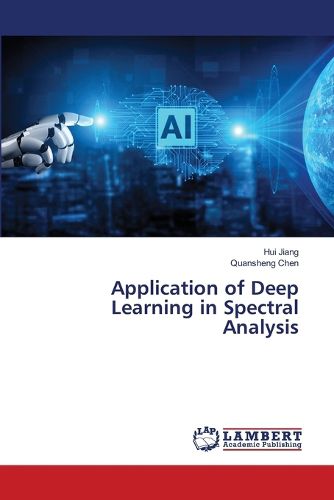Readings Newsletter
Become a Readings Member to make your shopping experience even easier.
Sign in or sign up for free!
You’re not far away from qualifying for FREE standard shipping within Australia
You’ve qualified for FREE standard shipping within Australia
The cart is loading…






This title is printed to order. This book may have been self-published. If so, we cannot guarantee the quality of the content. In the main most books will have gone through the editing process however some may not. We therefore suggest that you be aware of this before ordering this book. If in doubt check either the author or publisher’s details as we are unable to accept any returns unless they are faulty. Please contact us if you have any questions.
The deep learning approach combined with spectroscopic sensing techniques has shown great potential for quality evaluation of food and agro-products. Current advances in deep learning-based qualitative analysis include variety identification, geographical origin detection, adulteration recognition, and bruise detection, whereas quantitative analysis includes multiple component content prediction for fruits, grains, and crops. The main advantage of deep learning approach is the decreasing the dependence on human domain knowledge by end-to-end analysis and the improved precision and generalizability. This book discusses the current challenges of conventional chemometric methods and the emerging deep learning approach for spectral analysis. The research on exploring the learning mechanism of the 'black box' deep learning model is discussed. This book focuses on the application of deep learning approaches on quality evaluation of food and agro-products, lessons from current studies, and future perspectives.
$9.00 standard shipping within Australia
FREE standard shipping within Australia for orders over $100.00
Express & International shipping calculated at checkout
This title is printed to order. This book may have been self-published. If so, we cannot guarantee the quality of the content. In the main most books will have gone through the editing process however some may not. We therefore suggest that you be aware of this before ordering this book. If in doubt check either the author or publisher’s details as we are unable to accept any returns unless they are faulty. Please contact us if you have any questions.
The deep learning approach combined with spectroscopic sensing techniques has shown great potential for quality evaluation of food and agro-products. Current advances in deep learning-based qualitative analysis include variety identification, geographical origin detection, adulteration recognition, and bruise detection, whereas quantitative analysis includes multiple component content prediction for fruits, grains, and crops. The main advantage of deep learning approach is the decreasing the dependence on human domain knowledge by end-to-end analysis and the improved precision and generalizability. This book discusses the current challenges of conventional chemometric methods and the emerging deep learning approach for spectral analysis. The research on exploring the learning mechanism of the 'black box' deep learning model is discussed. This book focuses on the application of deep learning approaches on quality evaluation of food and agro-products, lessons from current studies, and future perspectives.